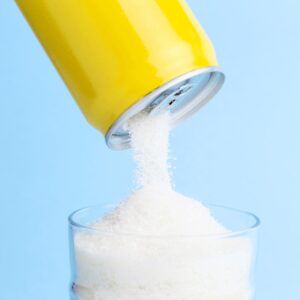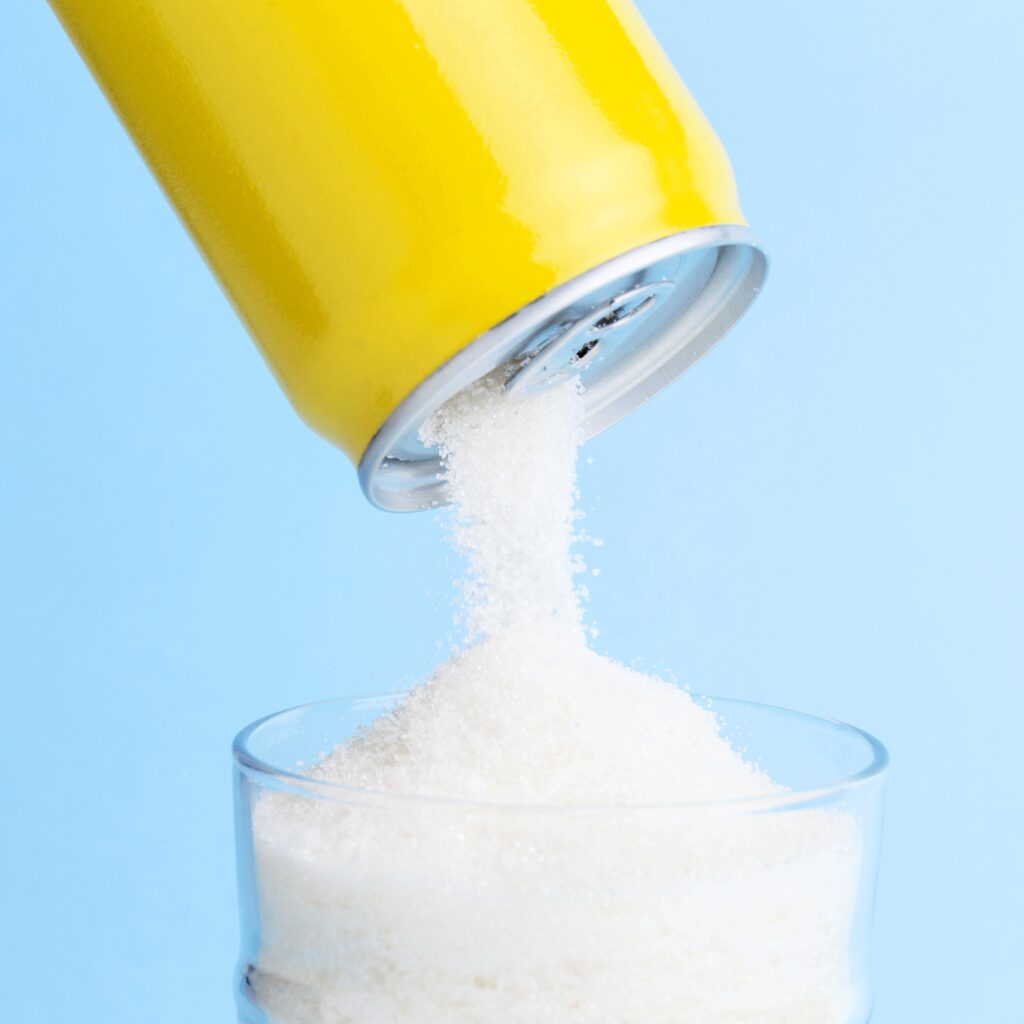 Zero calories seems like the obvious choice for a trimmer waistline, right? The label says “Sugar-Free,” so it must be healthy. Sweetness without extra calories, why not? These are the things marketing teams and advertisers want you to think. Offering sweetness without adding calories is the aim of artificial sweeteners but will they help with weight loss?
Zero calories seems like the obvious choice for a trimmer waistline, right? The label says “Sugar-Free,” so it must be healthy. Sweetness without extra calories, why not? These are the things marketing teams and advertisers want you to think. Offering sweetness without adding calories is the aim of artificial sweeteners but will they help with weight loss?
Over the last five decades, artificial sweeteners have become more popular and used in a plethora of food and beverage items today. They come in several forms, sugar alcohols (sorbitaol, mannitol, xylitol, lactitol, erythritol), synthetic sweeteners (Sacchrin, Aspartame, Sucralose), natural sweeteners (Stevia). Many people would say these sweeteners are helping to keep calories in check, or even help stick to a diet while still enjoying sweets. After all, that is exactly what these options claim to offer. Case in point, a typical 12-ounce regular soda contains about 150 calories, almost all of from sugar, while the same amount of diet soda has zero calories. So, the choice seems easy.
In the end, most of us just want to try to be healthier, watch our diet, and keep our weight in check. Unfortunately, artificial sweeteners play tricks on us and most do not realize it. One major problem is that those using artificial sweeteners may replace the lost calories through other means. Many of us, without conscious thought, will “treat” ourselves to that second helping or slice of cake because our diet drinks don’t have calories. They think “I’m drinking diet soda, so it’s ok to have cake.”
The fact is artificial sweeteners are 100 to 1000 times sweeter than table sugar. Artificial sweeteners change the way foods taste because they desensitize your taste buds. How the human body and brain respond to these sweeteners is very complex. A miniscule amount brings a sweet taste compared to that of sugar but can cause an overstimulation of sugar receptors. Frequent use of these supernaturally sweet artificial sweeteners can limit tolerance of more complex tastes. Those who use them routinely will find less intensely sweet foods, like fruit, less appealing, and unsweet foods, like vegetables, just unpalatable. The use of artificial sweeteners can cause people to shun healthy, filling, and highly nutritious foods while craving and consuming more artificially flavored foods with less nutritional value.

Artificial sweeteners play another trick. They can disrupt our brains from associating sweetness with caloric intake. They are so supernaturally sweet; the brain doesn’t know the difference between artificial sweetness and regular sugar sweetness. The brain wanted something sweet and with these artificial sweeteners, it got something sweet. It responds to sweetness with signals to eat more. The brain registers such a sweet taste with possessing many calories when there are none. As a result, the brain begins the process of managing all those calories by setting off a chain reaction with your hormones. Now the hormones are out of balance, which leads to an increased craving for more sweets causing people to choose sweet food over nutritious food, and ultimately, gain weight. Artificial-sweetened beverages are linked with an increased risk of developing type-2 diabetes. One research study showed participants who drank more than 21 diet drinks per week were twice as likely to become overweight or obese as people who didn’t drink diet soda.
You say you can give up diet drinks whenever you want, right? Think again. Animal studies suggest that artificial sweeteners may be addictive. In fact, this study by the American Diabetes Association showed that daily consumption of diet drinks was associated with a 36% greater risk for metabolic syndrome and a 67% increased risk for type 2 diabetes. Weren’t these sweeteners supposed to help prevent these diseases in the first place?
Artificial sweeteners will also disrupt your gut bacteria. They can cause the bad gut bacteria to outweigh the good bacteria, causing more problems. Artificial sweeteners will also interfere with your digestive system and can cause gas, bloating, indigestion, etc. They have also been associated with cancer. The bottom line, all of these artificial sweeteners are chemicals that the body does not know how to process and are ultimately stored as fat. We don’t know what effect large amounts of chemicals will have over many years. The World Health Organization (WHO) released a new guideline on artificial sweeteners, which recommends against the use of these to control body weight or reduce the risk of noncommunicable diseases. The WHO also stated that continued consumption doesn’t reduce weight and can increase the risk for type-2 diabetes, cardiovascular diseases, and mortality.
Watch this YouTube Video with more information on artificial sweeteners and how they impact your health:
https://www.youtube.com/watch?v=_PCjwL69fHE
So, what is the answer? Is table sugar better? Well, that depends on how it is packaged. Sugar-containing foods in their natural form, whole foods (like fruit), tend to be highly nutritious-nutrient dense, high in fiber, and low in glycemic load. However, refined, concentrated sugar consumed in large amounts rapidly increases blood glucose and insulin levels, increases triglycerides, inflammatory mediators and oxygen radicals. These issues then increase the risk for diabetes, cardiovascular disease, and other chronic illnesses. Ultimately, avoiding sweets, foods with added sugars, and those artificial sweeteners will help with overall health, nutrition, and weight management. Avoidance will also prevent comorbidities such as diabetes, hypertension, heart disease, high cholesterol, and other illnesses.
Sources:
- Shiraz, Zarafshan. Are sugar-free products beneficial for health? Hundustan Times, Jun 24, 2023.
- Strawbridge, Holly. Artificial sweeteners: sugar-free, but at what cost? Harvard Health, Jan 29, 2020.
- Strawbridge.
- WHO advises not to use non-sugar sweeteners for weight control in newly released guideline. May 15, 2023.
- Rubin, April. World Health Organization Warns Against Using Artificial Sweeteners. The New York Times, May 15, 2023.


